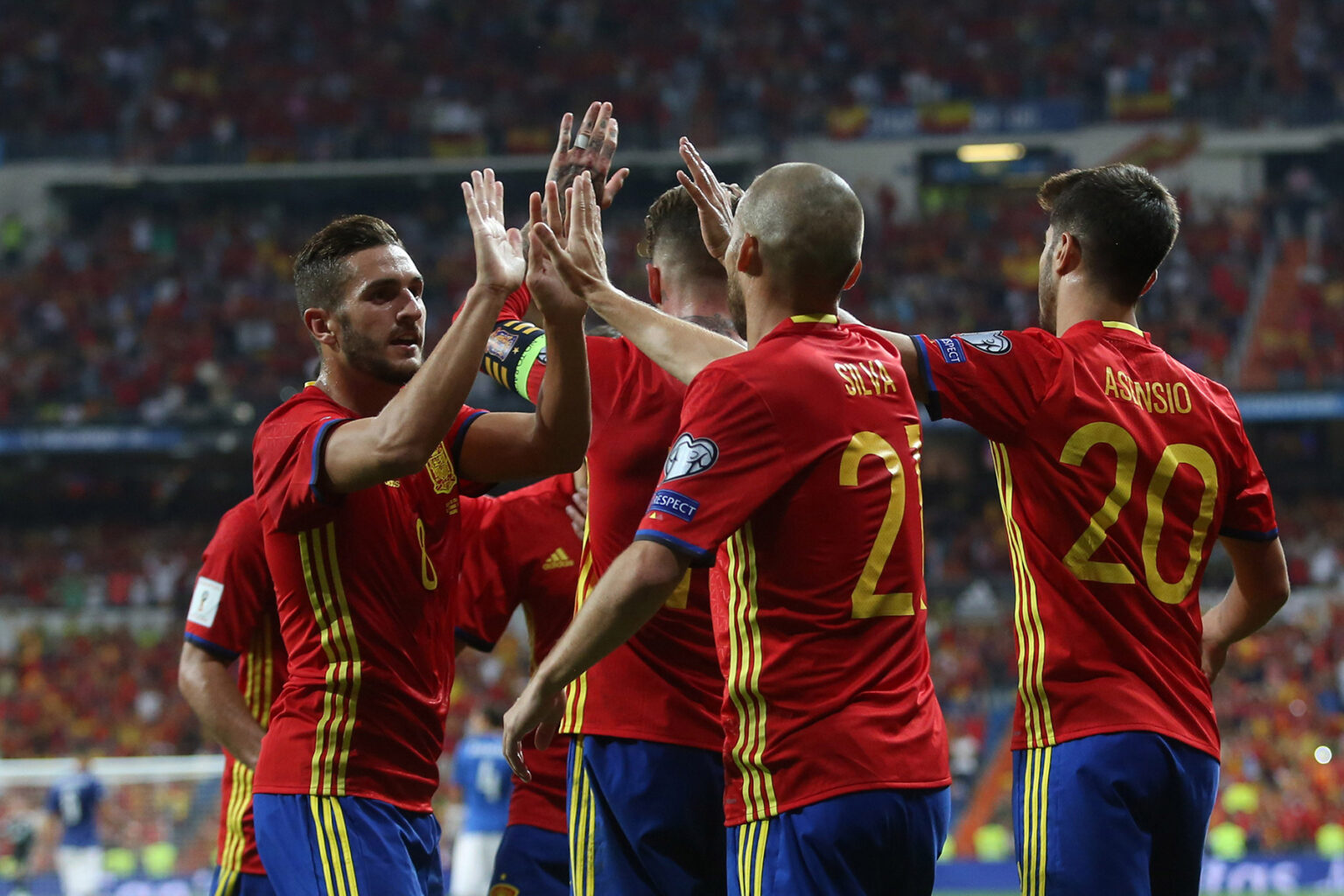Reading Hemingway, you’d think the national pastime in Spain is bullfighting. It’s not. It is football, and in a big way. In fact, to all you American tourists planning your trip to Spain, feel free to skip the (queasy) bullfight experience and buy tickets to a professional football match instead. You will come much closer to the ‘vitality’ Hemingway described in his chronicles of Spain.
I grew up on soccer in the States, so you’d think I’d be tickled pink to come to Spain where soccer is king, constantly in the news, and indeed where the biggest news of the last 10 years in the country is easily Spain’s winning the World Cup in 2010 (yes, in my personal opinion that news trumps all the economic crisis news the foreign press seems obsessed with reporting.)
DAZN
Wondering how to keep up with your favorite sports while living abroad? DAZN has you covered. With online and on-demand content, they offer a sport for everyone. Watch DAZN on your smart TV, smartphone, tablet, or games console and access top sporting events with a single subscription.
Soccer mania in Spain
But I have to confess, soccer mania here quickly tapped my fan capacity. The soccer season never ends! They are always playing it! Or so it seems to me, the American used to seasonal rotations between sports: baseball in the spring and summer, and (American) football, basketball, and hockey in the fall and winter. Here, there is pretty much only one sport that ever gets news coverage. All the others are just a footnote to the soccer coverage. (One morning a few years back on Radio Nacional de España, RNE, Pepa Fernández made a similar comment, noting that the two gold medals won by Mireia Belmonte in the European Short Course Swimming Championship only received a minute of coverage, compared to the hours and days of coverage for El Clásico, before the game has even happened!)
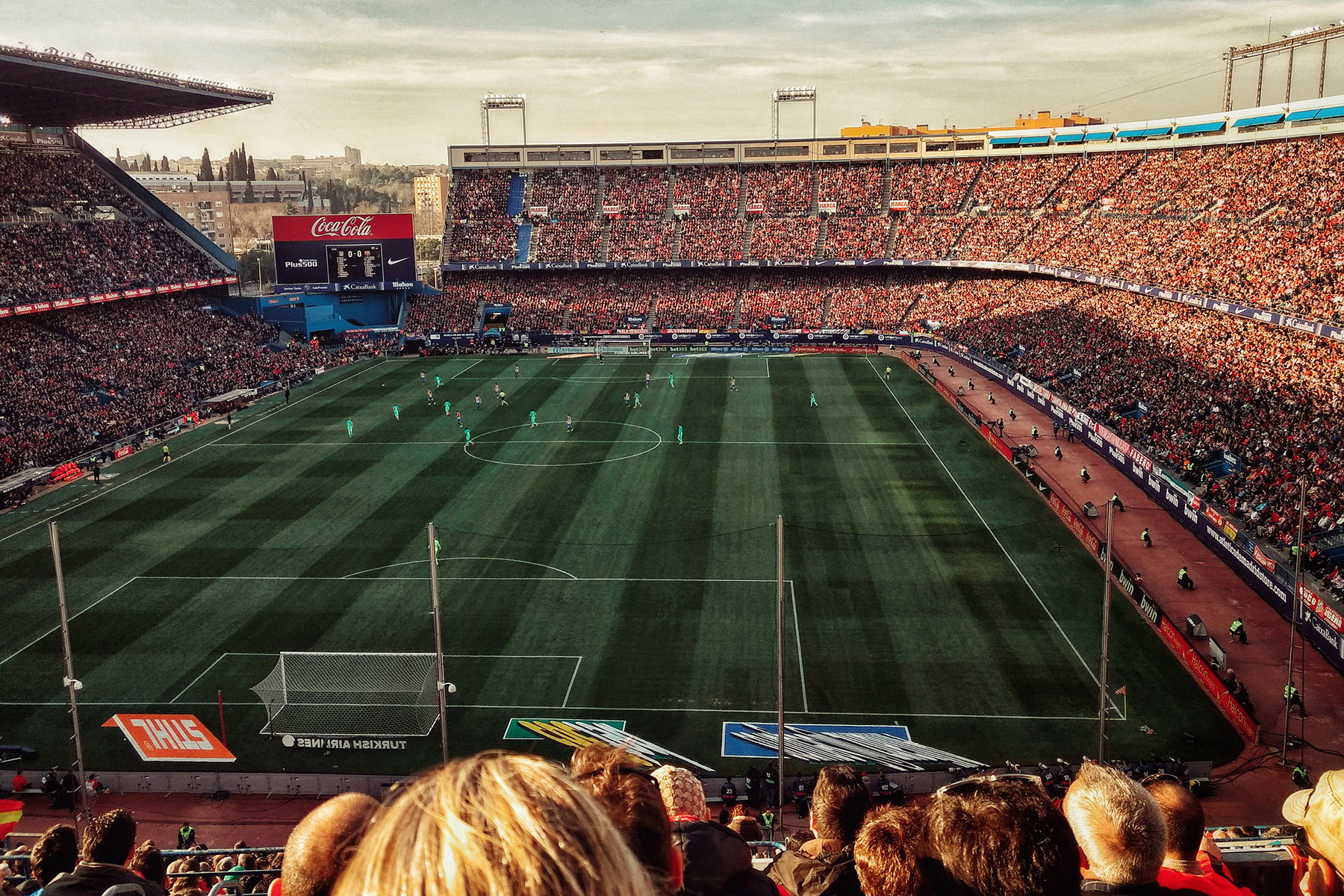
That said, whether or not you like the game, if you want to follow daily conversation on the street, following the soccer league results is right there alongside reading one of the daily newspapers as the best way to integrate into the local social life (The only other sport Spaniards like to talk about as much or more than soccer is politics). To help you understand why it seems to always be soccer time in Spain, it helps to understand the different leagues and their seasons, and where they fit into the weekly soccer news cycle.
Categories of leagues
World
Fédération Internationale de Football Association (FIFA) – Confederations competition, European Cup, and World Cup
a) La selección nacional: Spain’s flagship national team
b) Sub-21: Players under the age of 21
c) Femenino: Women’s league
Europe
Union of European Football Associations (UEFA) – European professional soccer leagues
a) La Liga de Campeones (Champion’s league): Professional teams, 1st tier European elimination contest [Here you find Real Madrid, Barça, Valencia, Villareal]
b) La Liga Europa (Europa League) – Professional teams, 2nd tier European elimination contest [Here, from Spain, Athletic de Bilbao and Atlético de Madrid]
Spain
The Spanish national league, La Liga – Spain’s professional football teams
a) Primera división (e.g. Barça, Real Madrid, Valencia)
b) Segunda división (e.g. Girona, Elche, Deportivo La Coruña)
c) Segunda B (e.g. Lugo, Real Madrid II, Getafe II)
La Copa del Rey (King’s Cup) – Spain’s elimination contest
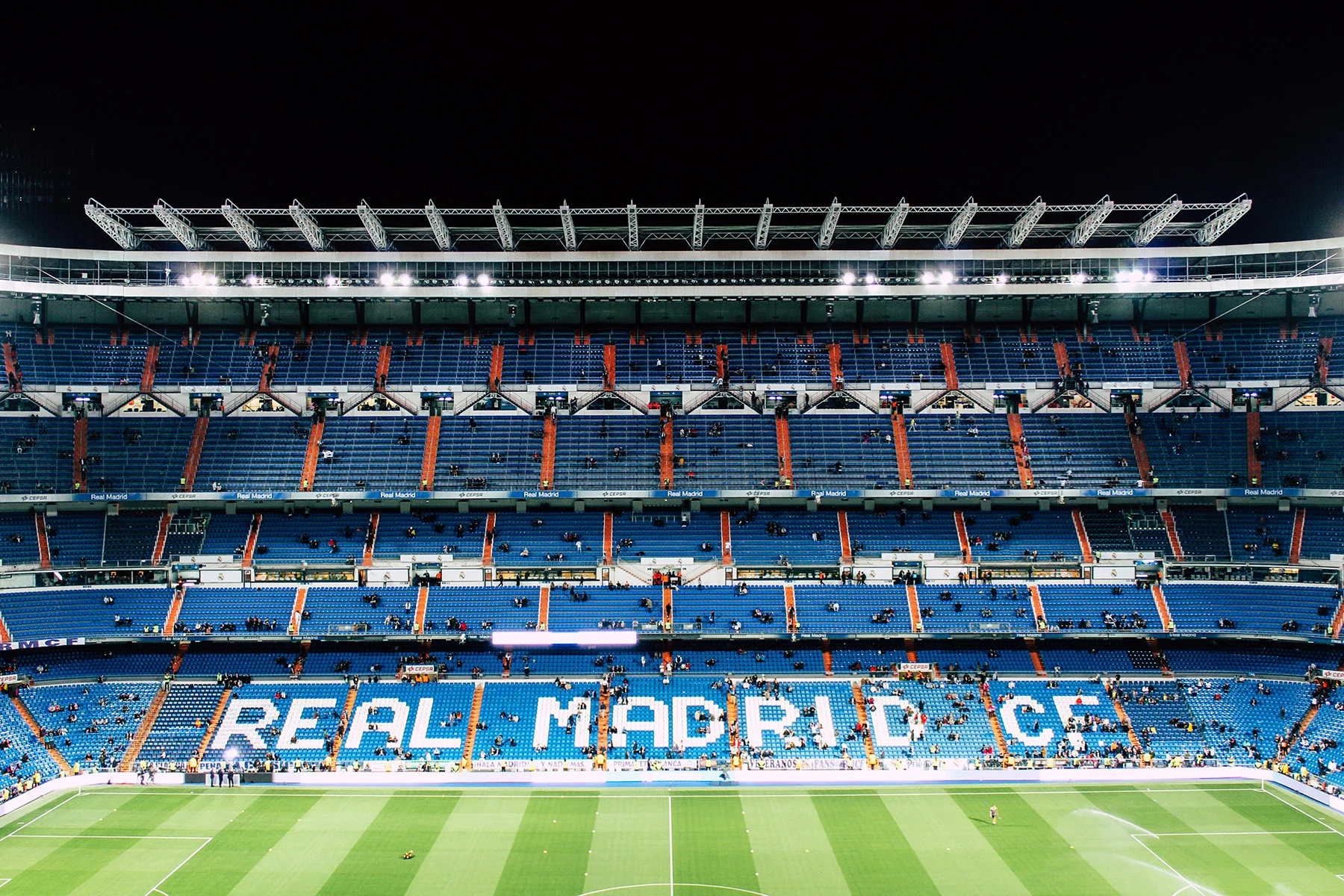
One point of confusion which can result from this multi-tiered league system is that Team X and Team Y can play one night for the Spanish league and have one outcome, and then play another night the same week or later for the Copa del Rey or European Champion’s and have another outcome, the one not impacting their rank in the other contest.
Which is to say that, according to my friend and informant for this entry, it is not uncommon for top teams like Real Madrid to play their lesser players in Copa del Rey games, for example, if it means having them rested and ready for the more serious competitions at the Spanish League or European Champions.
(This is how my Real Madrid fan friend explains to me why my team Valencia was able to beat his team in the Copa del Rey one year, even when Valencia struggles to qualify in the European Champion’s League… hmm, I see.)
To get a sense of how this patchwork of leagues plays out as a soccer routine, let’s outline the weekly and annual schedules.
The weekly schedule
It was once the case that Spanish league games (partidos) happened on Saturdays and Sundays, National Selection Games on Friday or Tuesday nights (but not very frequently), Copa del Rey games and Champion’s League games on Tuesday through Thursday, such that Mondays and most Fridays were rest days…
This is no longer the case. Now on Monday nights they are starting to have Primera División matches, and the Segunda División games have spilled over into Fridays. The result is this weekly layout (this may change):
Monday night: Primera División match
Tuesday night: Champion’s League matches, Copa del Rey matches
Wednesday night: Champion’s League matches, Copa del Rey matches
Thursday night: Europa League matches, Copa del Rey matches
Friday night: Segunda División matches
Saturday afternoon & night: Primera and Segunda División matches
Sunday afternoon & night: Primera and Segunda División matches
The annual calendar is slightly more complex
La supercopa de España, a playoff between the top team of La Liga and the winner of La Copa del Rey the previous year, starts off the Spanish league season in mid-August. This past August (2013) it was a showdown between FC Barcelona (Barça) and Atlético de Madrid. Whenever it Spain’s two top teams, that is, a match up known as El Clásico. Following this Super Cup, the various league seasons get underway.
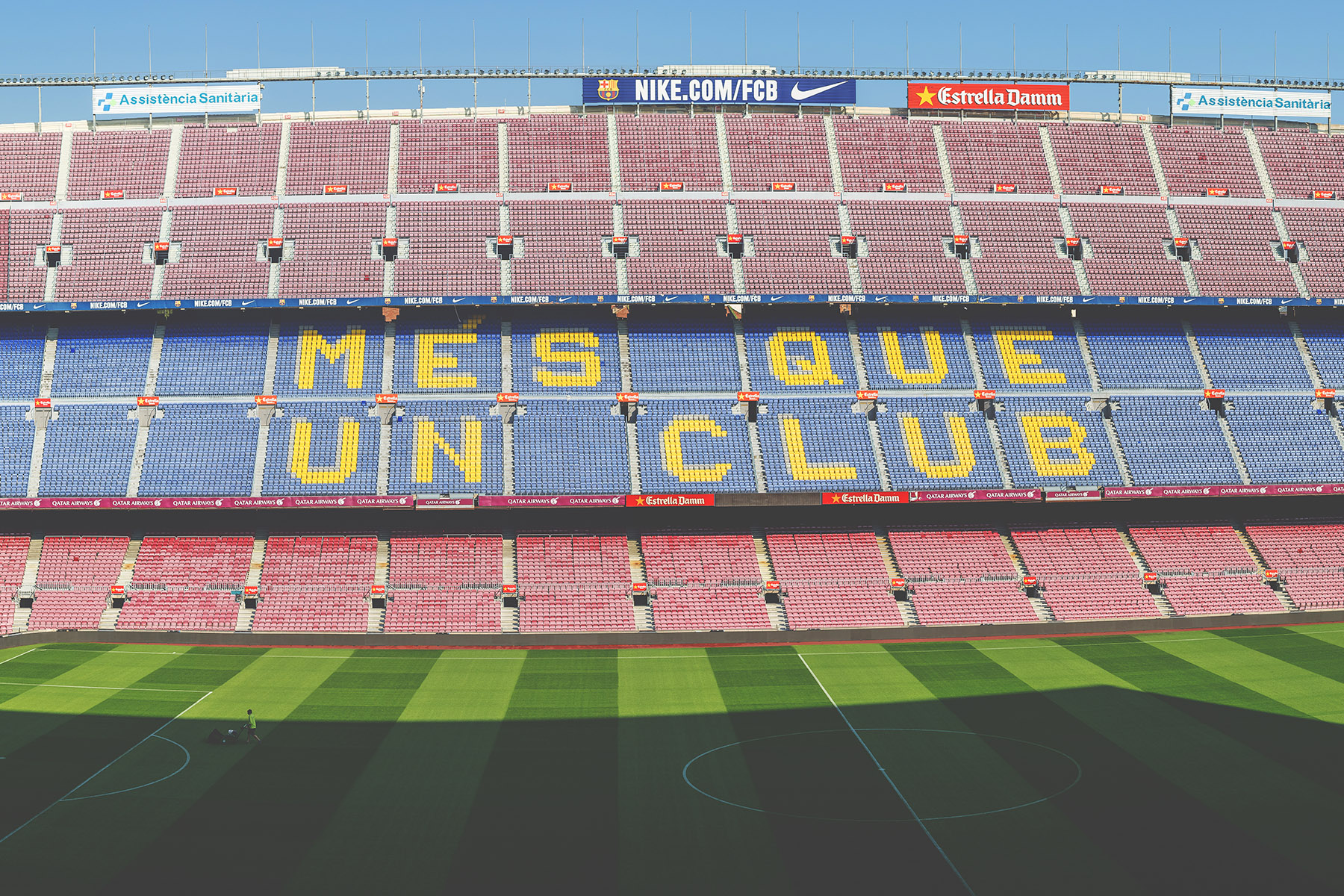
Calendar for the various leagues
August – October
First 3 rounds of elimination games for Copa del Rey, for Segunda División and Segunda B teams.
September – December
La Liga Jornadas (weekly round), games 1–18 (a.k.a. primera vuelta).
November – December
‘Round of 32’ eliminations for Copa del Rey, now including Primera División teams.
January – May
La Liga Jornadas, games 19–38 (a.k.a. segunda vuelta).
January
‘Round of 16’ and ‘Quarterfinals’ eliminations for Copa del Rey.
February
‘Semifinals’ eliminations for Copa del Rey.
End of May
Final for Copa del Rey.
For the elimination contests (eliminatorias, i.e. Copa del Rey and UEFA European contests), the trend is more games at the start of the seasons (August, September), and then tapering off as more and more teams are eliminated in each phase (fase).
In the European eliminations, the top two teams in each group (of four) in the Champion’s League, at the end of the first phase, advance to the next round. The third ranked team, however, is relegated to the 2nd tier contest of the Europa League, to join the other teams who passed out of their first phase.
The national league system is much more complicated, though also more fun to follow week-to-week. All first and second division teams are ranked based on their wins (partidos ganados – 3 points), losses (partidos perdidos – 0 points), tied games (empates – 1 point), and points scored (goles – not counted unless two teams are tied in points, in which case the team with the most goals is ranked higher*).
[*In some cases, the ranking is actually more complicated than this. In case of tied points on ranking: 1) the team with more points scored directly against the tied team is ranked higher, 2) if they are still tied, then goals start to count… first the goals actually scored between them in their two seasonal games, 3) if there is still a tie (heaven forbid), then it is broken by whomever scored more goals over the entire season… and if there is still a tie then hell freezes over and anarchy reigns on earth. No, seriously, at that point, who knows what happens?]
The top four teams at the end of the season automatically qualify for the UEFA Champion’s League the next year. Seeds fifth and sixth qualify for the UEFA Europa League playoffs.
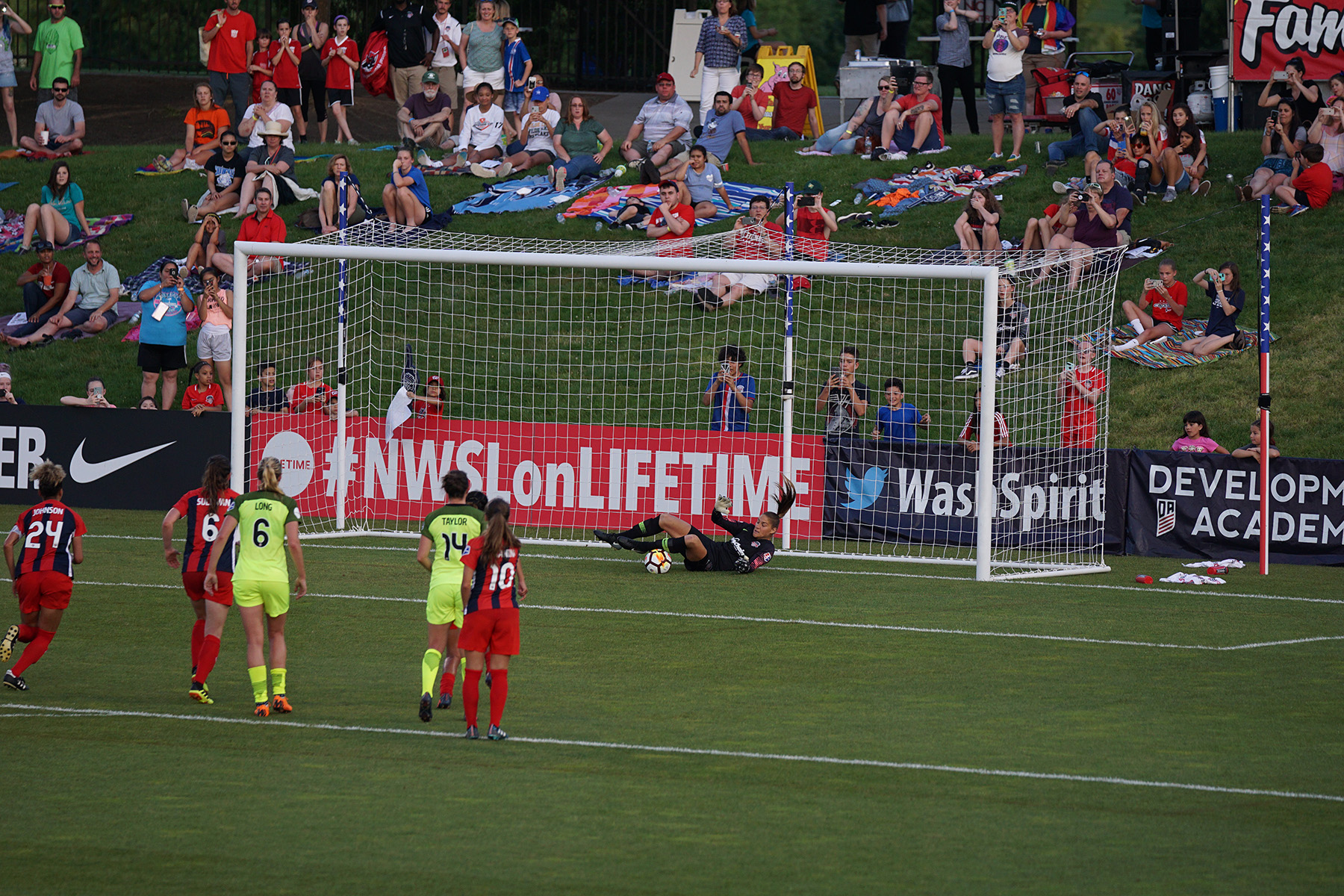
Another kind of contest also takes place at the bottom of the Primera División chart, and the top of the Segunda División. The bottom three teams of the First Division at the end of the season are relegated down to the Second Division. The top two teams of Second division move up automatically, while the four teams ranked 3rd through 6th hold an elimination for the third spot to ascend to Primera División.
One nice feature about Spain’s national league double jeopardy system is that, at the end of the season, even when the league winners have been determined, there can still be another month or so of intense fan interest in the games between the bottom six teams. (This is good because usually Real Madrid and Barça lock in the top two seats early on.) You still have these bottom teams (and all their fans) checking it out to make sure they aren’t demoted to the second tier division, and the third through sixth ranked teams in the Second Division with high hopes to move up and playing off in an elimination series (usually played in June or July).
Where to watch football in Spain
When it comes to watching sport in Spain, you have several options. If you can’t make it to the stadium, there are plenty of TV channels where you can watch soccer matches on the small screen. Streaming and subscription services include:
- DAZN – a purely sport-related streaming platform that shows on-demand and live matches from a range of leagues.
- Movistar Plus+ – as well as having La Liga rights, this subscription platform offers many other sports, TV shows, and films.
But just when you think the summer has come…
1) Friendly matches – amistosos
Between the various top teams (Barça & Real Madrid) or the Liga Española with teams in foreign countries; or
2) a European Championship or a World Cup
Both, alternating, every two years, ensuring that there continues to be more soccer games and media commentary running through June and July.
Not to mention all the intense news coverage and speculation over the soccer players’ latest haircut (sure to be the next craze among boys ages 12–21), whomever they are dating and (in theory) starting to get serious about, or where they’ve decided to vacation this summer. (How can the 1-hour segment of daily national news always manage to dedicate 20 minutes to soccer? Nadal is lucky if he gets five minutes after a Grand Slam victory.

Sigh. I think it is a waste of time-fighting this big business fanaticism, but the constant coverage can certainly burn one out. (At least football fans in Spain almost never elevate their soccer mania to violence, as occurs in many other countries… hooligans anyone?) If you start to pay attention, however, the skill of play in Spain’s professional league is really quite amazing.
Whatever you think of soccer in Spain, I recommend to all expats that you try and find some way to stay on top of the football news. After politics, and the economic crisis, chances are that soccer is the subject everyone around you is talking about. So it can really help you to follow local conversations, events, and humour.
Non-exhaustive list of useful soccer vocabulary
If you ever happen to watch a football match in Spain, you might here the following words and phrases thrown about:
soccer ball: balón
throw-in: saque de banda
corner kick: saque de esquina
goal kick: saque de puerta
goal: puerta/portería
bench: banquillo
to pass: pasar
header: cabezazo
shot at the goal: tiro a puerta
goal: gol
score a goal: meter un gol
offsides: fuera de juego
injured player: jugador lesionado
foul: falta
penalty kick: penalti
goalie: portero
forward: delantero
midfield player: centrocampista
defender: defensa
linesman: juez de línea
referee: árbitro
card (yellow, red): tarjeta (amarilla, roja)
first/second half: primer/segundo tiempo
extra time: prórroga
highest goal scorer: pichichi (named for Rafael Moreno ‘Pichichi’, Athletic Bilbao player 1910s–1920s)
least scored-on goalie: Zamora (named for Spain’s still legendary goalie, Ricardo Zamora)
